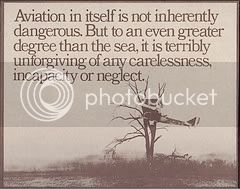James Burleigh
Well-known member
As a person whose job includes implementing enterprise risk management ("ERM") projects at the Berkeley campus, I think about risk a lot. My musings about risk are fueled not only by a professional curiosity, but also by a natural curiosity, a symptom of which is a bachelors in philosophy from the same place I now work.
When civilians (non-riding friends and colleagues) learn that I ride, they often exclaim in some form or other how dangerous motorcycles are. To this I sometimes respond, depending on how weary I am in that moment about hearing another story about how their friend's brother was killed in a motorcycle accident (does everyone have a story like that? :glare: )--I sometimes respond that they are not inherently dangerous, but they are risky.
And I may even go so far, depending now on my interlocutor's appetite for hearing me go on and on about something they don't really care about but just wanted me to be sure I knew I was crazy--I may even go so far as to explain that the risk can be mitigated to a very acceptable level if the rider is willing to get training, make good decisions, never ride impaired, and wear appropriate gear. Of course to this I get back, "Well, my friend's brother was wearing a helmet." Sigh....
Anyway, this morning I was reading an article in which the person being interviewed mentions something called the Bluejacket's Manual given to people when they join the Navy. He said it has "two little quotes, like epigrams," one of which is "The sea is not inherently dangerous, but it is extremely unforgiving."
Whether such a manual exists (never heard of it myself, in spite or because of being the son of a Naval Academy graduate), and whether or not these quotes are in said book, I don't care. But I sure like that quote, which I shall now adopt as my standard reply when told by civilians that motorcycles are dangerous:
[SIZE=12pt][/SIZE]
Motorcycles are not inherently dangerous, but they are extremely unforgiving.

Photo courtesy of "Tom McQuiggan's Home Page" (https://www.mcqart.com/xj600/index.htm)
When civilians (non-riding friends and colleagues) learn that I ride, they often exclaim in some form or other how dangerous motorcycles are. To this I sometimes respond, depending on how weary I am in that moment about hearing another story about how their friend's brother was killed in a motorcycle accident (does everyone have a story like that? :glare: )--I sometimes respond that they are not inherently dangerous, but they are risky.
And I may even go so far, depending now on my interlocutor's appetite for hearing me go on and on about something they don't really care about but just wanted me to be sure I knew I was crazy--I may even go so far as to explain that the risk can be mitigated to a very acceptable level if the rider is willing to get training, make good decisions, never ride impaired, and wear appropriate gear. Of course to this I get back, "Well, my friend's brother was wearing a helmet." Sigh....
Anyway, this morning I was reading an article in which the person being interviewed mentions something called the Bluejacket's Manual given to people when they join the Navy. He said it has "two little quotes, like epigrams," one of which is "The sea is not inherently dangerous, but it is extremely unforgiving."
Whether such a manual exists (never heard of it myself, in spite or because of being the son of a Naval Academy graduate), and whether or not these quotes are in said book, I don't care. But I sure like that quote, which I shall now adopt as my standard reply when told by civilians that motorcycles are dangerous:
[SIZE=12pt][/SIZE]
Motorcycles are not inherently dangerous, but they are extremely unforgiving.

Photo courtesy of "Tom McQuiggan's Home Page" (https://www.mcqart.com/xj600/index.htm)
Last edited by a moderator:





















































